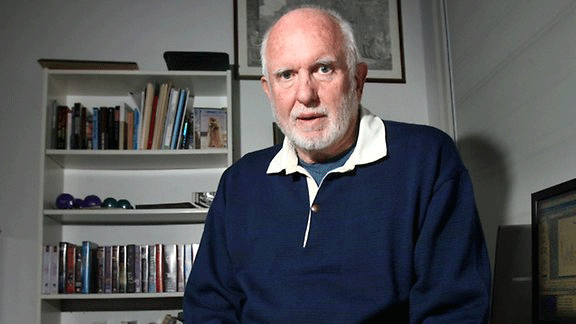Death of a ruling class warrior

The Australian ruling class is in mourning. One of its most capable and dedicated class warriors, former mining company executive Ray Evans, died on 17 June.
Evans was one of the founders of the HR Nicholls Society, an influential right wing ginger group that sought to rewrite the rules of industrial relations in the 1980s and beyond – and was phenomenally successful.
We’re told often enough that different aspects of the world have nothing to do with each other. Trade unions, for instance, are told to stay out of political debates and focus only on “industrial issues”.
Ruling class figures such as Evans would have none of this nonsense. As well as the HR Nicholls Society, he helped to found the Lavoisier Society, which promotes climate change denial, and the Bennelong Society, which attacks the idea of Aboriginal self-determination.
In an obituary in the Australian Financial Review, John Roskam, from the conservative Institute for Public Affairs, claimed, “[T]he influence of these organisations rested on nothing more and nothing less than the power of the ideas they espouse”.
In fact, their influence rests on something else entirely.
Evans wrote speeches for Hugh Morgan and pioneered the latter’s aggressive approach to the Aboriginal land rights movement in the early 1980s. In one notorious speech to the Australian Mining Industry Council, Evans’ boss used Biblical passages to justify mining companies’ operations, criticised land rights legislation as “a symbolic step back to the world of paganism, superstition, fear and darkness” and accused Aboriginal people of cannibalism.
The first meeting of the HR Nicholls Society was convened in the Melbourne suburb of Toorak, one of Australia’s wealthiest postcodes, in early 1986. The guest list was a who’s who of the right in Australian politics, including fellow HR Nicholls Society founder Peter Costello.
The catchcry of this cabal was “management’s right to manage”, and their number one strategy was management bullying backed with legal action.
The keynote speech was given by Charles Copeman, the new CEO of Robe River Iron Ore Associates. Robe River was an industrial giant, responsible for 6 percent of Australia’s exports at that time. Workers at Robe River had built up wages and conditions through leveraging the company’s need for quick delivery of iron ore sold on the spot market. Copeman was determined to smash these conditions, along with the unions that had won them.
Six months after the first HR Nicholls Society meeting, 60 workers were instructed to perform duties well outside their usual roles. Elderly women who worked in the canteen were ordered to do outside jobs such as cleaning the yards under the Pilbara sun. When they refused, they were sacked.
When the Western Australian industrial court ordered the company to reverse its action, management sacked the entire workforce of 1,160 from eight unions and locked the gates.
An 11-day lockout was followed by four months of petty harassment on the job. Workers were given written warnings for walking too slowly. Militants were disciplined by being demoted, often to duties that they could not perform safely. Meanwhile, legal writs were served on 10 unions and 24 rank and file workers.
Finally, a six-week strike ended in defeat. Despite calls from delegates across the Pilbara for solidarity strikes, union officials ran for cover rather than rock the boat for the then Labor government. This was a crucial turning point. Over the following decade, the massive iron ore province of the Pilbara was transformed from a union stronghold into the anti-union bosses’ wonderland that it is today.
So while Evans is no more, his vicious legacy endures.
If you’re rich, you don’t have to be smart – you can pay someone else to be smart for you. Most ruling class figures don’t bother to dally in politics. They are too busy exploiting workers, streamlining operations, counting cash and clobbering rivals to bother. That’s why they outsource politics to political parties and the think tanks that develop their policies.
In the end, the source of Evans’ influence was not “the power of his ideas”, but the brute economic power of the people he worked for.